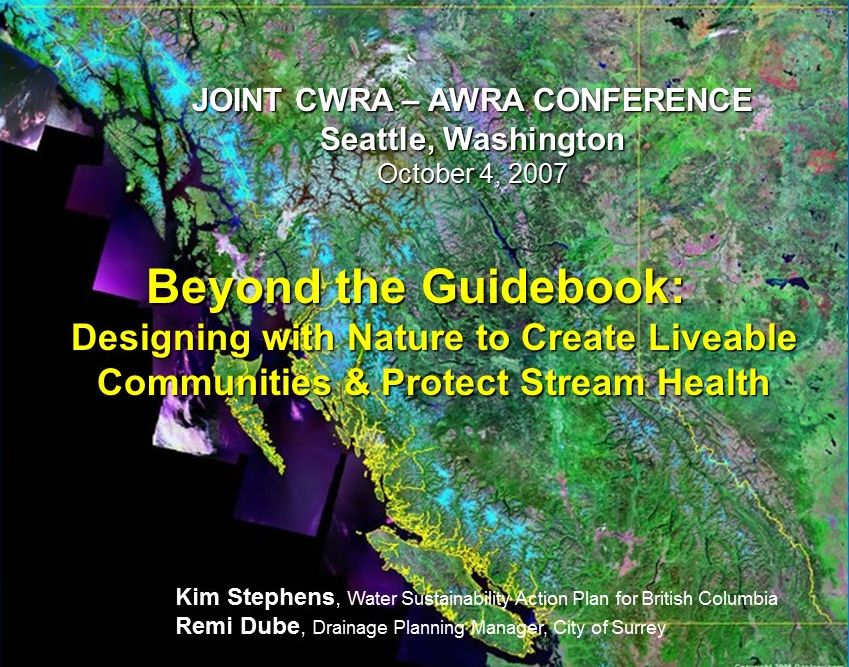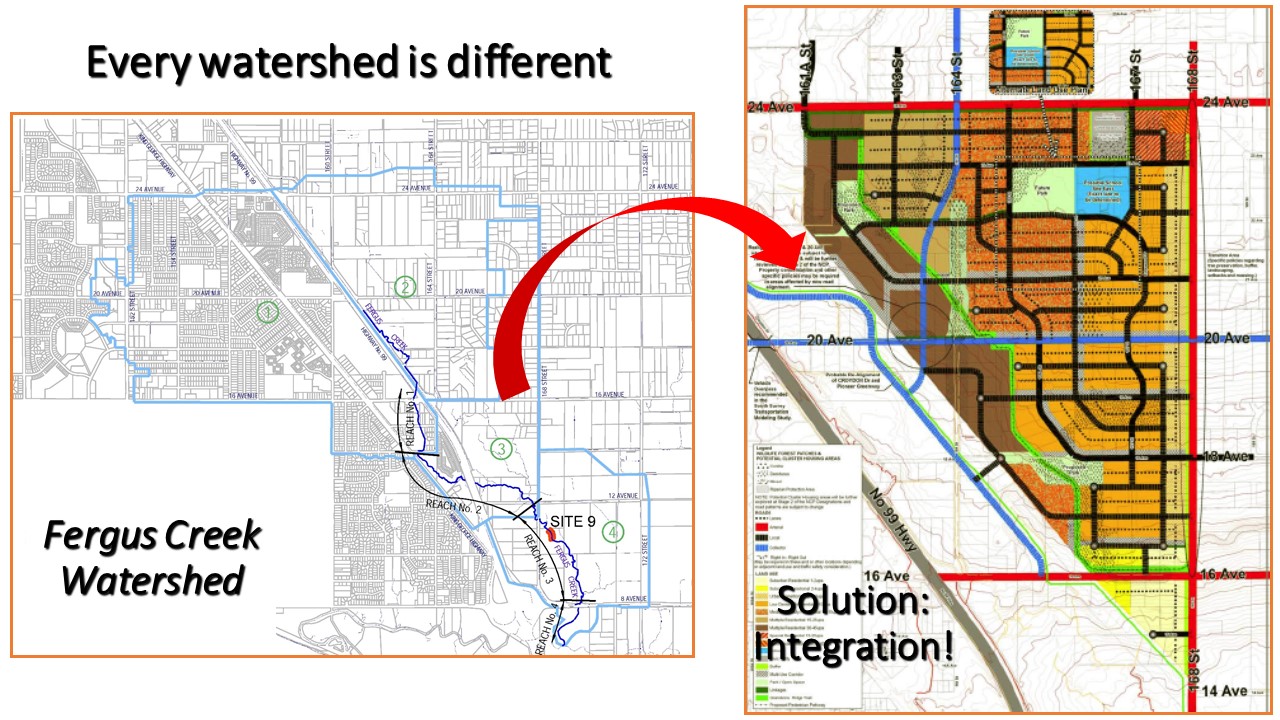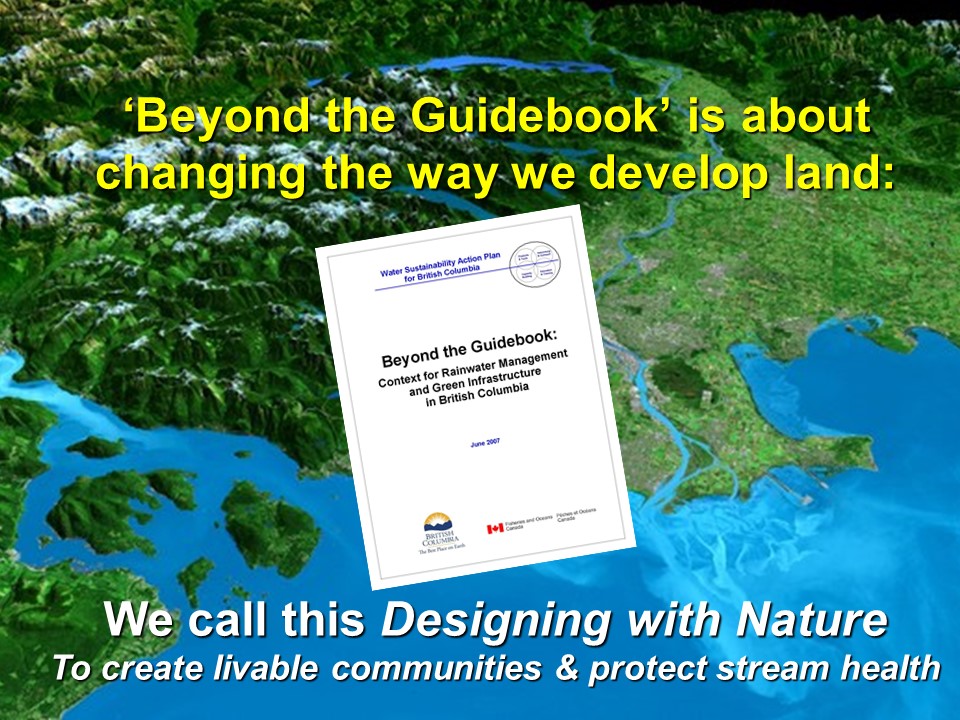FLASHBACK TO 2007: “Beyond the Guidebook Initiative” introduced to Washington State audience at cross-border conference
Note to Reader:
The American Water Resources Association and the Canadian Water Resources Association co-hosted a conference in Seattle, Washington on October 4-5, 2007. The conference was structured as six sessions, with Session #1 being a cross-border panel that addressed this topic: Stormwater Management and Low Impact Development. The panel session was positioned to follow the Keynote Address by BC Environment Minister Barry Penner.
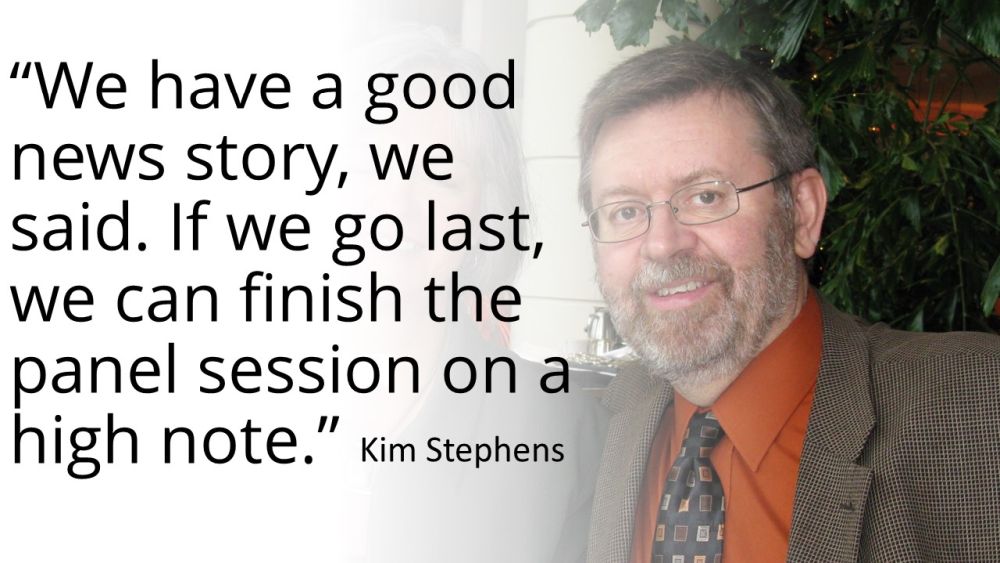
Rainwater Management on Diverging Paths in British Columbia and Washington State?
The members of the cross-border panel comprised Kim Stephens (Water Sustainability Action Plan) and Remi Dubé (City of Surrey) from British Columbia, and Gary Minton and Ed O’Brien representing Washington State. The panel was asked to discuss and contrast approaches to rainwater/stormwater management taken on both sides of the border. One of the questions that they addressed was:
What lessons can Washington State and British Columbia learn from each other as they strive to minimize the impacts of rainwater/stormwater runoff?
“I recall so clearly the essence of the discussion during our first conference call to plan the panel session,” states Kim Stephens, now the Executive Director of the Partnership for Water Sustainability in BC.
“Because our Environment Minister was the keynote and we were following him, the Americans suggested that Remi and I speak first. But after the four of us had shared what we each would be talking about, Remi and I concluded that it would be best if Gary and Ed spoke first. We have a good news story, we said. If we go last, we can finish the panel session on a high note. If Gary and Ed go last, the audience will be depressed by their doom and gloom stories. They agreed. And so Remi and I spoke last.”
“This process crystallized the theme for the cross-border panel. In my part of the presentation, I stated that…..a decade ago (1997), British Columbia and Washington State had the same science and the same understanding of what it meant. The point of departure was the same. A decade later (2007), we are on diverging paths.”
Beyond the Guidebook
Kim Stephens and Remi Dubé concluded the panel session with a co-presentation on Beyond the Guidebook: Designing with Nature to Create Liveable Communities and Protect Stream Health. In Part One, Kim Stephens described the practice of rainwater management as it has evolved over the past forty years in British Columbia. In Part Two, Remi Dubé described future directions.
“In 2002, when Stormwater Planning: A Guidebook for British Columbia was published, its underlying premise that land development and watershed protection can be compatible represented a radical shift in thinking,” Kim Stephens explained to the Washington State audience.
“The Guidebook recognized that water volume is something over which local government has control through its infrastructure policies, practices and standards. The Guidebook focus on volume control was the catalyst for a change in thinking that has resulted in innovation at the site scale.”
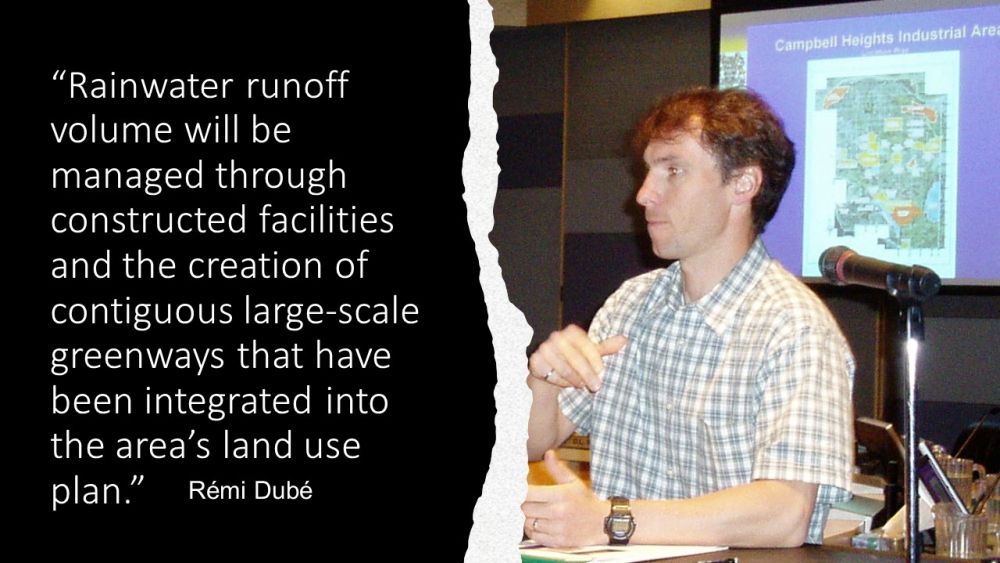
Fergus Creek Pilot
“Beyond the Guidebook is an inter-governmental initiative that builds on this foundation by advancing a runoff-based approach and decision support tool,” added Remi Dubé, Drainage Planning Manager, City of Surrey. “We are incorporating all the lessons learned to date to correlate runoff volume management with urban stream health at a watershed scale.”
He explained that the City of Surrey’s Fergus Creek watershed plan is a pilot for Beyond the Guidebook.
“We will be implementing ‘green solutions’ as an alternative to conventional engineered ‘blue solutions’. Rainwater runoff volume will be managed through constructed facilities and the creation of contiguous large-scale greenways that have been integrated into the area’s land use plan.”
“The science-based analytical methodology that we have validated through the Fergus Creek process now enables the City of Surrey and other local governments to explore the fundamental requirements both explicit and implicit in Federal Fisheries Guidelines for stream health and environmental protection,” concluded Remi Dubé.
To Learn More:
For the complete story, download Rainwater Management on Diverging Paths in British Columbia and Washington State? This article was published in the AWRA Newsletter, November-December 2007.
To view the co-presentation by Kim Stephens and Remi Dubé, download Beyond the Guidebook: Designing with Nature to Create Liveable Communities and Protect Stream Health.


